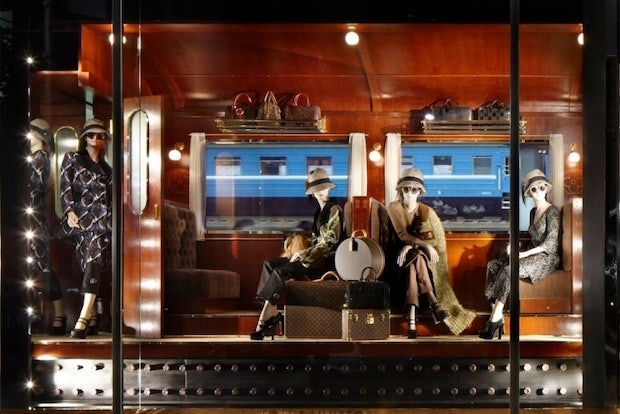China Luxury Market Expected To Grow Up To 22 Percent In 2012#

Following up strong earnings results from Hermès -- which recently reported a 13.4 percent rise in Q2 2012 sales led by a 26.9 percent sales increase in the Asia-Pacific region -- and Remy Cointreau (which saw a 24.4 percent increase in revenue, driven by cognac demand in Asia and the United States), French luxury giants LVMH, PPR and L'Oreal this week reported double-digit growth that defied observer fears of a significant China slowdown. Via Bloomberg:
LVMH, owner of the Givenchy and Fendi brands, said expansion in developing nations spurred a 20 percent gain in earnings in period. Emerging-market revenue at Gucci owner PPR rose 17 percent, helping profit beat analysts’ estimates, while L’Oreal said the region has become its biggest division as the cosmetics maker reported second-quarter sales growth that also topped estimates. All three companies are based in Paris.
“In a world where companies are struggling with diving European demand and media are awash with bad news, luxury-goods companies like LVMH and PPR seem to be coming from another planet,” said Luca Solca, global head of European equities at CA Cheuvreux. “The revenue and profit performance of PPR and LVMH are very satisfying.”
The luxury market in Asia-Pacific will expand as much as 16 percent in 2012, according to Bain & Co estimates. The forecast excludes China, which is expected to grow as much as 22 percent. Burberry Group Plc (BRBY), the U.K.’s largest luxury company, this month reported sales that missed analysts’ estimates, causing concern that Europe’s debt crisis and slowing growth in China may be hurting demand for high-end goods.
In the second half of this year, all eyes are on LVMH and its many brands -- not least of which its flagship Louis Vuitton, which just opened its first mainland China Maison in Shanghai to great fanfare -- as well as PPR and Richemont, to see if continued China expansion and a slowdown in Hong Kong's once-red-hot-and-now-just-simmering high-end market will ultimately bite into year-end profits. For Burberry's part, despite disappointing sales figures in the first quarter of this year, the British brand's massive expenditure on improving existing spaces not only within China, but in the kinds of destinations frequented by wealthy Chinese tourists, means there’s reason for optimism. Burberry has been far more successful in the digital realm in China than any other brand with the possible exception of Louis Vuitton, and its global flagships in New York, Hong Kong and London remain shopping meccas for globetrotting Chinese.
